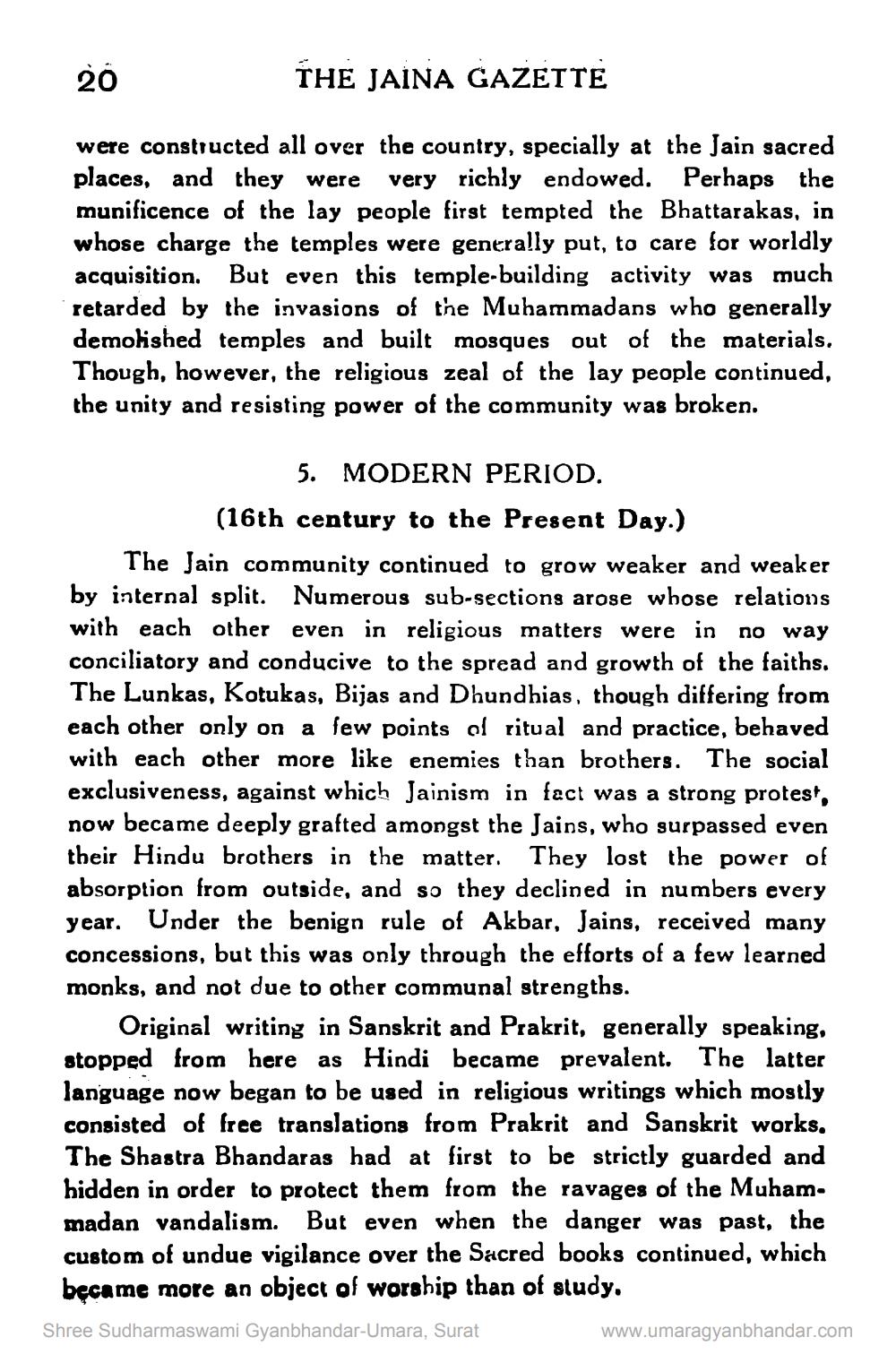________________
20
THE JAINA GAZETTE
were constructed all over the country, specially at the Jain sacred places, and they were very richly endowed. Perhaps the munificence of the lay people first tempted the Bhattarakas, in whose charge the temples were generally put, to care for worldly acquisition. But even this temple-building activity was much retarded by the invasions of the Muhammadans who generally demolished temples and built mosques out of the materials. Though, however, the religious zeal of the lay people continued, the unity and resisting power of the community was broken.
5.
MODERN PERIOD.
(16th century to the Present Day.)
The Jain community continued to grow weaker and weaker by internal split. Numerous sub-sections arose whose relations with each other even in religious matters were in no way conciliatory and conducive to the spread and growth of the faiths. The Lunkas, Kotukas, Bijas and Dhundhias, though differing from each other only on a few points of ritual and practice, behaved with each other more like enemies than brothers. The social exclusiveness, against which Jainism in fact was a strong protest, now became deeply grafted amongst the Jains, who surpassed even their Hindu brothers in the matter. They lost the power of absorption from outside, and so they declined in numbers every year. Under the benign rule of Akbar, Jains, received many concessions, but this was only through the efforts of a few learned monks, and not due to other communal strengths.
Original writing in Sanskrit and Prakrit, generally speaking, stopped from here as Hindi became prevalent. The latter language now began to be used in religious writings which mostly consisted of free translations from Prakrit and Sanskrit works. The Shastra Bhandaras had at first to be strictly guarded and hidden in order to protect them from the ravages of the Muhammadan vandalism. But even when the danger was past, the custom of undue vigilance over the Sacred books continued, which became more an object of worship than of study.
Shree Sudharmaswami Gyanbhandar-Umara, Surat
www.umaragyanbhandar.com




